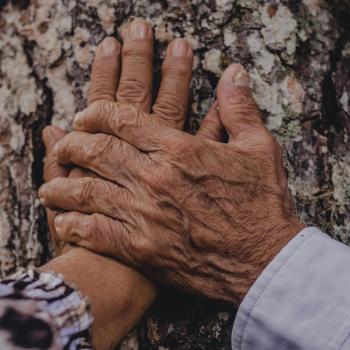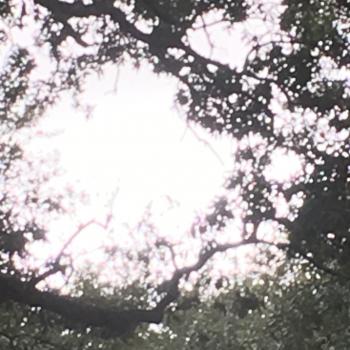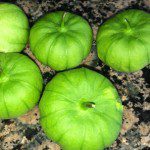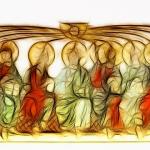Isaiah 40 is our Old Testament reading for Advent this week. Isaiah 40 is famous for being the prophetic text about John the Baptist: “the voice of one calling in the wilderness, prepare the way of the Lord,” etc. But I was drawn to a different aspect of the passage when I read it:
All people are like grass, and all their faithfulness is like the flowers of the field.
The grass withers and the flowers fall, because the breath of the LORD blows on them…
The grass withers and the flowers fall, but the word of our God endures forever. [Is 40:6b-8]
This passage was written long before the Christian council of Nicaea established the doctrine of the Trinity — that God is Father, Son, and Holy Spirit — but already we see the Son and the Spirit at work in this passage. In Hebrew, ruach means both “breath” and “spirit” at the same time, so what the “breath of the Lord” does in verse 7 is the action of the Holy Spirit. The “word of our God” in verse 8 is the same Word that “became flesh and dwelt among us” (John 1:14) — i.e. Jesus Christ.
God is continually blowing on us with His Spirit, seeking to make us eternal and remove all imperfection from us so that we can endure forever with Him. The trivialities that take up way too much time in our lives are like the grass and the flowers. If we cling to these things, our lives will wither just as they do. The only thing that can make us eternal is the Word of God, when it comes to dwell in our hearts, or to say it differently, when Jesus Christ comes to dwell in our hearts.
By becoming flesh in Jesus Christ, God’s Word made eternal life possible for us. We too can be filled with God’s Word, not in the same perfect way that Jesus was but as replica of the perfect image of God that Jesus represents. It’s important to understand that this Word is more than just the words of the Bible. A lot of times people think God’s “word” only refers to the Bible. The Hebrew dabar and Greek logos which are translated into “word” in English have a much richer meaning than simply a word on a page. God’s Word is what He uses to create and redeem everything. As John 1:3-4 relates, “Through Him all things were made; without Him nothing was made that has been made. In Him was life, and that life was the light of all mankind.” The Word is not a book; He’s a person. He speaks to us through the book of testimony we call the Bible, but He transcends the literal text itself.
Now before I close this out, let me make a very important distinction that I often get wrong. To live in the word of God instead of in the trivialities of grass and flower is not synonymous with focusing on the “big picture” and ignoring the details, or preferring the abstract to the concrete. That’s one of my biggest problems right now. When faced by the concrete clutter in my house, I flee to the abstract neatness of cyberspace. I think that because I’ve got big ideas in my brain, that means I don’t have to do dishes. My wife has been out of town this week, and I’ve discovered all the little details that I take for granted each time I run out of something like juice boxes or diapers. Living in the Word is not living in an abstract blog-world where you don’t have to change diapers or make lunches.
Since all things were made through the Word, the physical world is not to be shunned for the world of ideas. What we shun is a carnal rather than spiritual appropriation of the objects in the physical world. To live according to the eternal Word is to treat all things as part of the testimony of God’s love rather than cheap consumable objects that can give us happiness independent of their Creator. So here’s a closing question for us as we gather around the manger this season: are we clinging to pieces of grass that will soon die or have we grabbed hold of the eternal Word?















